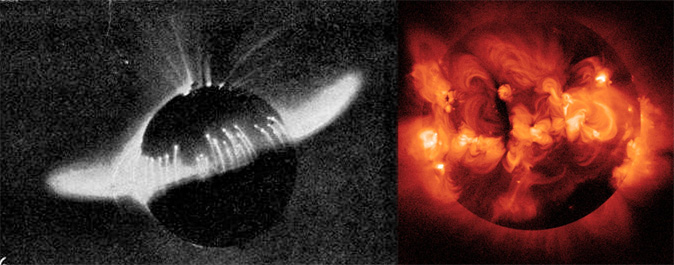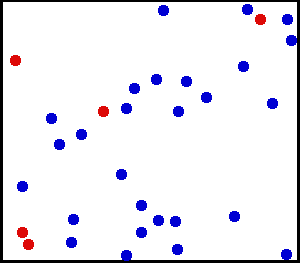From the standpoint of empirical physics, how is "inflation did it" any more credible than "God did it"? It's not "rhetoric" to point out that something lacks empirical support.
I know you will ignore this post but I am hopefull:
God did it, what are the observable traits that match the model of god?
Infaltion did it, what are the observable traits that match the model of inflation?
Remember that inflation, just like elctrons is not a
thing it is a set of ideas that try to explain something. IE an approximate model. There are no electrons, neutrons or protons. These are semantic idiomatic self refencing labels that refer to coherent theories and hypotheses.
They are not the behaviors they describe, they are attempts to describe the behavior.
Gravity does not exist, it is a thought label that is applied to observation, just as the 'law of gravity' does not exist, it ia model that tries to describe observations.
You keep getting hung up on the words, it is not the words that matter, it is the ability to model observations.
The cosmological expansion of space is one model to approximate the red shift phenomena. Edd says that you can use doppler shift if you want but it runs into some sort of difficulty.
So here you are saying
"EM forces didit."
Which is great except for one thing this requires that there be something driving the expansion and causing the recession of objects. So you don't like the cosmological expansion of space.
Great, fine, wonderful.
How does 'EM firlds/forces didit" work?
Wouldn't that require the the universe show a majority of say one polarity of charge? Say negative and that all the galaxies and galaxies cluster show a negative charge? Or something like that? Other wise if the universe is neutral, why does it expand?
They are all made up ideas MM, if you don't like the current model of expanding space time, then how does you EM model work?
Again the same request made early on in this thread:
1. State your model.
2. What predictions does your model make?
3. What observation match the predictions of your model?
So what charge would a star have?
What charge would a galaxy have?
What charge would a galaxy cluster have?
Why if the EM force decreases with distance do things recede faster the farther away they are?
Does this mean that farther objects have greater charges?
How does your model work?



